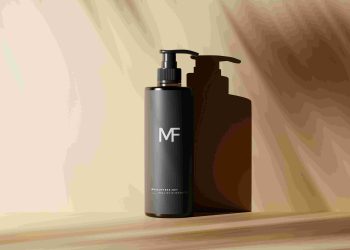In-depth Beauty Review for Skincare Products
It’s a bold claim, but here it is: the skincare industry thrives on half-truths and misconceptions. In a world where millions are spent on anti-aging creams and wrinkle serums, most consumers fail to realize the significance of a single concept—ingredients. My own journey into skincare began with frustration and skepticism. Year after year, I switched products, seduced by glittering promises and glowing testimonials, only to realize that my results were fleeting at best. This led me down a path of research and experimentation, ultimately transforming the way I approached self-care entirely.
From this personal struggle evolved a broader understanding of societal tendencies. Psychology teaches us about decision-making heuristics, and nowhere are these shortcuts more evident than in the cosmetics aisle. Most buyers tend to equate price with quality, believing that expensive products deliver better results—a fallacy that marketers have exploited for decades. In truth, effectiveness often boils down to scientific formulations, not brand prestige.
Rethinking Skincare: Ingredients Over Labels
Standard wisdom in the beauty industry often keeps consumers focused on packaging and promises rather than actual efficacy. But let’s challenge this notion. The skin isn’t concerned about the logo on the bottle; it’s affected by the molecular actions of active ingredients like hyaluronic acid, vitamin C, and retinol, all of which provide scientifically-backed benefits. Here lies the first step towards skincare enlightenment: a complete pivot from marketing-driven choices to ingredient-driven ones.
Personal Experience Meets Scientific Innovation
After diving into dermatology texts and consulting industry experts, I started asking pivotal questions. If hyaluronic acid can boost hydration, why should I invest in a dozen overpriced hydrating products when a generic serum with this compound could suffice? This thought process led me to strip my skincare routine down to essentials: cleanse, hydrate, exfoliate, and protect against UV rays. Surprisingly, the results rivaled—or exceeded—those achieved with elaborate 10-step regimens.
Skincare Beyond Beauty: Implications for Business and Technology
Here’s where we venture into interdisciplinary thinking. If we analyze skincare trends through a business lens, the underlying DNA reflects a tech-driven consumer model. Subscription boxes, AI-guided skin consultations, and customizable solutions are reshaping the industry at large. This mirrors broader societal trends: people demand personalization and increasingly rely on tech-driven insights.
But is this evolution sustainable? Philosophically, this echoes existentialism. Are we pursuing skincare for its genuine benefits or as a means to mask deeper insecurities? Why do we desire the perpetual appearance of youth? By invoking frameworks like Maslow’s hierarchy of needs, one can hypothesize that skincare aims not solely for survival but for self-esteem and societal acceptance.
Future Trends: Where Skincare is Heading
The future holds untapped potential. Imagine wearables capable of evaluating skin pH and hydration levels in real-time, delivering precise recommendations. Beyond technological marvels, we might also see shifts towards eco-friendly formulations and biodegradable packaging. Societal demands for sustainability coupled with advancements in biotechnology are set to challenge traditional manufacturing processes.
Practical Steps for Effective Skincare
- Start by identifying your skin type. Face creams built for oily skin won’t suit dry skin complexions.
- Focus on ingredients rather than product names. Research is your ally.
- Adopt a minimalist routine to avoid product overload.
- Consult dermatologists and rely on medical-grade products if necessary.
- Always wear SPF, as sun protection remains the most undervalued yet crucial step.
These actionable strategies save both money and time, while delivering visible results.
Broader Lessons: Beyond Skincare
At its core, skincare emphasizes a broader life philosophy: continuous learning and self-improvement. A transparent routine parallels disciplined habits in work or education. The pursuit of better products mirrors the quest for mastery in other fields, whether those include coding, marketing, or medicine.
To this end, readers are encouraged to approach skincare with the same curiosity and critical thinking they would apply to analyzing business trends or societal issues. Mere adherence to popular opinions stunts growth; skepticism and questioning create pathways to novel solutions.











